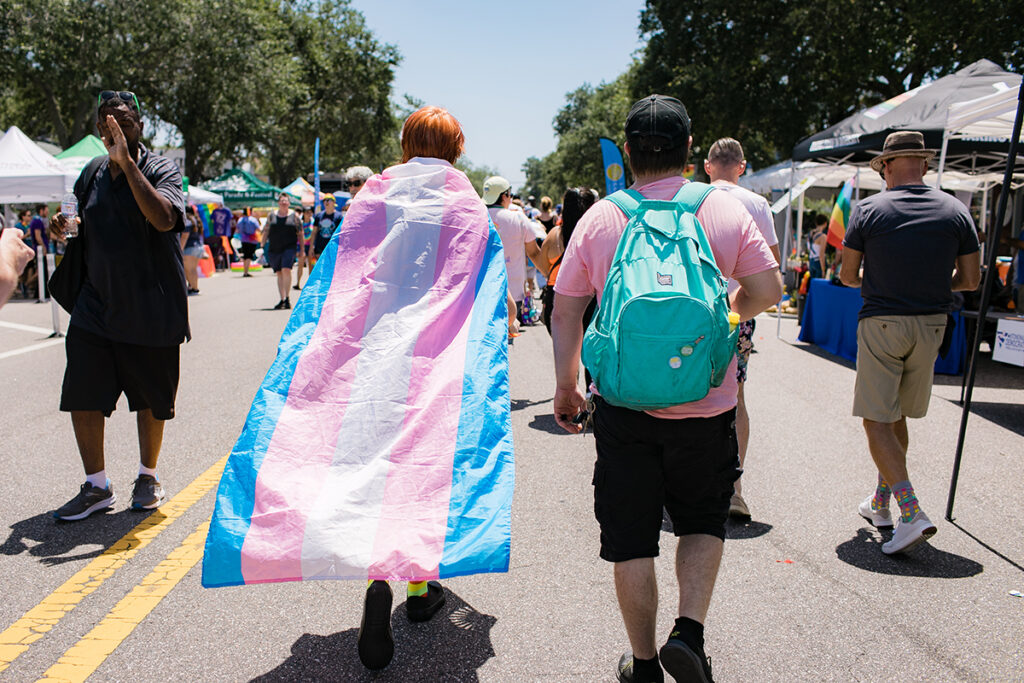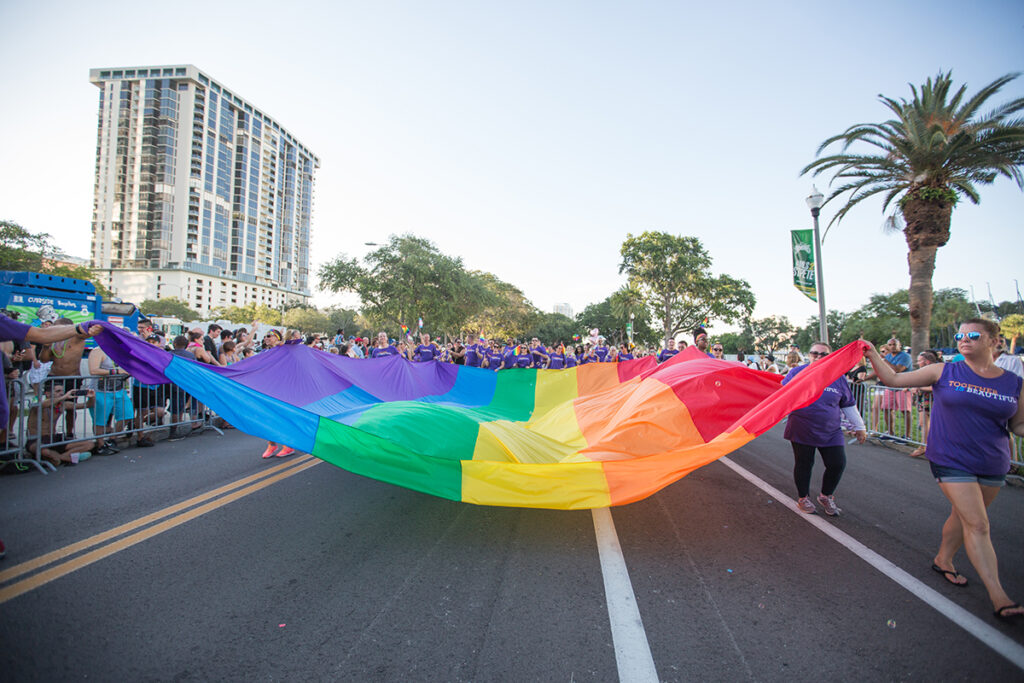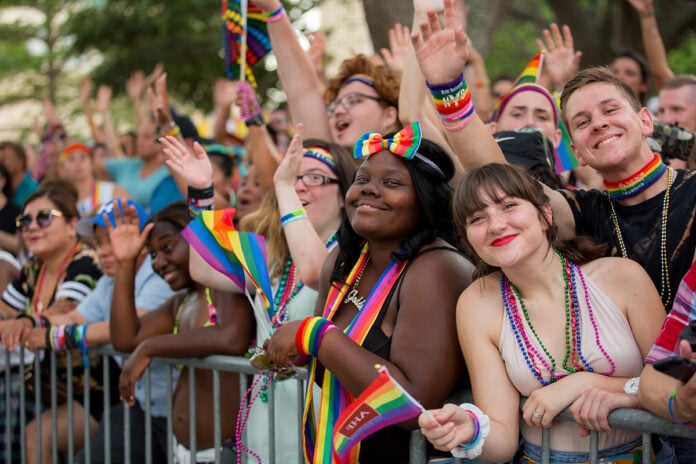53 and Counting: Shouting Gay Pride
Fifty-three years ago, patrons at the Stonewall Inn in New York City chose to fight back in the face of yet another police raid targeting the LGBTQIA+ community. This decision signaled a shift in the movement. No longer content to ask politely for basic human rights; activists stepped forward with pride. Annual marches multiplied and evolved into opportunities for celebration along with commemoration as the LGBTQIA+ community proudly, and loudly, demanded rights and respect.
The Evolution of St. Pete Pride
St. Petersburg was slow to join the public fight for pride. In June 2003, organizers launched the first St. Petersburg Pride Month. An estimated 10,000 people attended events. Two decades later, St. Pete Pride has grown into Florida’s largest LGBTQIA+ celebration, one of the largest in the country. After two years of COVID, anticipation is high for the month-long slate of events scheduled for St. Pete Pride 2022. This year also marks the five-year anniversary of St. Pete Pride’s first-ever TransPride March. Nathan Bruemmer, the only transgender member of the 2017 board of directors, led the effort to organize the inaugural trans-focused event. No longer behind the curve, as Bruemmer explained, it will take place an hour before the main parade begins. The decision was a first for any major pride market in the United States. Transgender marches often occur on separate days from main pride events, Bruemmer said, as if the “T” in LGBTQIA+ were meant to be silent. The lack of inclusion contributed to the sense of invisibility trans folks sometimes experience within the wider LGBTQIA+ community. Today, St. Pete Pride continues to add events and programs as it actively endeavors “to amplify, support, and celebrate the diverse voices of the LGBTQIA+ community – including the Black, Brown, and Trans voices that too often go unheard.”

TransPride: Commemorating 53 Years
Trans exclusion from pride is especially ironic considering how vital the trans community was in the birth of the early movement. Two women, in particular, deserve accolades: Marsha P. Johnson and Sylvia Rivera. Johnson was a 23-year-old Black trans woman, drag performer, and sex worker when she stepped forward with 17-year-old Rivera to lead the resistance at Stonewall. Both were staunch advocates for the inclusion of marginalized groups within the LGBTQIA+ community, including people of color and transgender people. After Stonewall, they co-founded Street Transvestite Action Revolutionaries (STAR), which provided organizing space as well as lodging for those in the trans community who needed it. Both were also deeply troubled by the exclusionary direction of the movement.
Rivera once forced her way onto the stage at a 1973 gay pride rally and expressed her passion for inclusion. “If it wasn’t for the drag queen, there would be no gay liberation movement,” she declared. “We’re the front-liners.” She was booed. Transphobia and racism took their toll on both women. Rivera left activism for a time after a suicide attempt. In 1992, Johnson’s body was found in New York City’s East River. Her death was declared a suicide, although many suspect she was murdered. Returning to activism after her friend’s death, Rivera found a slowly changing attitude. In 1994, she was given a place of honor at the 25th anniversary Stonewall March. Reenergized, she continued to fight for trans inclusion until her death at age 50 in 2002. Twenty years later, the movement continues to move toward fully embracing the trans community. Still, violence has increased against trans individuals, especially Black, Indigenous, and people of color (BIPOC) trans women. Last year was the deadliest on record for transphobic violence in the United States. Jenny De Leon, murdered in Tampa in November 2021, was the 46th of an estimated 47 trans and gender non-conforming people killed in the nation last year. Along with increased violence, there has been an escalation of anti-trans legislation.

Pride is More than a Parade
All of this serves as a reminder that pride is not just a parade. It’s a way to speak out. Despite strides made toward equality, the work is not done. Florida is one of 30 states that do not fully protect LGBTQIA+ people from discrimination. Meaning, for example, that LGBTQIA+ people can be evicted, denied essential medical treatment, forced into “conversion therapy,” ejected from restaurants, and/or forced to deny/ hide their identity. Policymakers across the nation have proposed record numbers of anti-LGBTQIA+ legislation this year, with Florida at the head of many of these efforts. The city of St. Petersburg continues to earn perfect scores from the Human Rights Campaign (HRC) for local policies protecting LGTBQIA+ people from discrimination, but as long as LGBTQIA+ persons can be denied basic human rights at any level, we need to keep speaking out loud. Pride events can do that as they commemorate the past, celebrate the present, and continue to build a community of support.
For more detailed information about LGBTQIA+ rights, visit the HRC at www.hrc.org.



